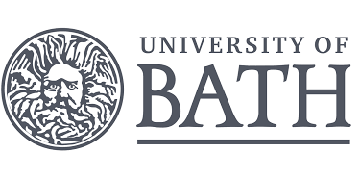University of Bath: Project to investigate menstrual justice in LMIC countries gets green light thanks to ERC Funding
New research which aims to reduce the stigma and improve the experiences of menstruation for women and girls living in low- and middle-income countries (LMICs) has got underway, thanks to new funding from the European Research Council (ERC).
The project, being led by demographer and social statistician Dr Mel Channon from the University’s Department of Social & Policy Sciences, is worth €1.5 million over five years and will involve in-depth field work in both Nepal and Guatemala.
Dr Channon, who has previously led projects focusing on menstrual taboos in Nepal, is now teaming up with colleagues from across the University and internationally to focus on the issues surrounding menstrual justice – women’s rights to a ‘good period’ – more broadly.
Whilst most women and girls menstruate at some point, their experiences vary widely, with stigma, pain, lack of knowledge, and lack of materials frequently causing negative impacts on their physical, mental, and psychosocial wellbeing.
In Nepal, for example, research from Dr Channon in 2019 found that many women were still forced to sleep outside when on their period, despite the practice of ‘Chhaupadi’ having been banned.
Dr Channon explains: ‘Menstruation is frequently seen as shameful, undignified, dirty and taboo. Research so far has been overly focused on hygiene management and sanitation. But we can do better than “manage”; improving the experience of having a period is not just about physical symptoms. It’s about social structures, power imbalances, policy processes, and messy lived experiences.
‘Menstruation is frequently excluded from mainstream international discourses on human rights and sexual and reproductive health. The WHO is yet to include menstruation in its list of SRHR topics and a Human Rights Council resolution last year noted that they regret that menstruation is not explicitly included within any core human rights instrument. It continues to receive limited attention in policy, research, programming and resource allocation.
‘The aim of this new project is to improve women and girl’s menstrual experiences and to reduce negative impacts of menstruation and related practices, focusing on LMICs. To do this, we will develop a framework and theory of menstrual justice and injustice which bring the needs and experiences of women and girls to the fore.
‘Menstrual pain will be a core focus as this has almost entirely been ignored by menstrual intervention studies so far, despite this being the main reason that menstruation impacts school and work attendance.’
Through collaboration, the research will investigate the complex relationships between menstruation and the practices surrounding it, including public policies at local, national and international levels. This will include collaborative, primary, mixed-methods research in Nepal and Guatemala.

